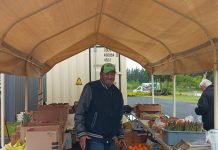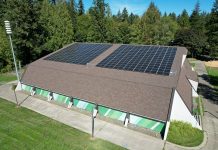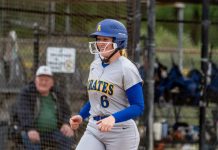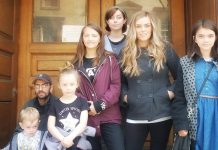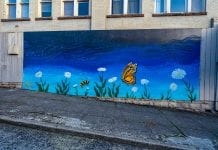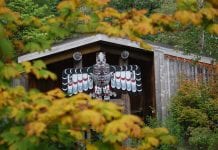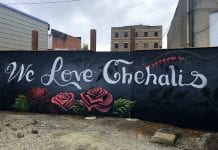In light of Centralia and Chehalis high schools recently receiving funds to expand science, technology, engineering and math programs (or STEM programs), Lewis County Coroner Warren McLeod encourages students to think about a career as a coroner.
 While this may seem like odd choice, the job can be very fulfilling for those with a curious mind, while being vital to a community. McLeod came by the job in Lewis County in a round-about way. Born and raised in Boston (you can hear his slight accent in his lack of Rs), he worked for 16 years on an ambulance. Later he moved to Las Vegas, working as an EMT in casinos for three years. Then he started taking classes at the local college, where the instructor—a lead investigator at the Clark County, Nevada Sheriff’s Office—encouraged McLeod to become an investigator as well.
While this may seem like odd choice, the job can be very fulfilling for those with a curious mind, while being vital to a community. McLeod came by the job in Lewis County in a round-about way. Born and raised in Boston (you can hear his slight accent in his lack of Rs), he worked for 16 years on an ambulance. Later he moved to Las Vegas, working as an EMT in casinos for three years. Then he started taking classes at the local college, where the instructor—a lead investigator at the Clark County, Nevada Sheriff’s Office—encouraged McLeod to become an investigator as well.
Then he obtained a job as a forensics professor at South Puget Sound Community College (SPSCC), and moved to Lewis County in 2008. A friend then told him about an opening for Lewis County Coroner, an elected position, which he sought and won. McLeod explains that the reason the position is elected is that way his bosses are the voters. If a coroner reported to any county position, he or she could be subject to pressure for determination of outcomes of cases.

For the first four years he was in the position, it was half time, so he still taught full-time work at SPSCC while working as coroner. In 2015, he approached the Lewis County Commissioners and made a case for the position to be full time and they agreed. Now, he and his chief deputy coroners are full-time positions and there are 10 part-time on-call deputy coroners. However, McLeod also still continues to teach classes at SPSCC and also at Centralia College.
As for the requirements to be a coroner, it basically doesn’t require much. One must simply be 18 years old, live in the county and have no criminal convictions. However, McLeod has an associate degree and bachelor’s degree in criminal justice, along with a master’s degree in administration and political science. All of the deputy coroners in his office either have bachelor or associate degrees, or are working on associate degrees.
McLeod is AMBDI certified, which stands for American Board of Medicolegal Death Investigators. There are three others in his office with the certification and four more are eligible. His office is also accredited by IACME (International Association of Coroners and Medical Examiners), meaning they meet very strict national and international standards. Lewis County is one of only five coroners statewide to be IACME accredited.
“It also helps get grants,” McLeod explains. “We have received over $150,000 in grants to help pay for personnel, equipment and training.”

McLeod is on the board of WACME (Washington Association of Coroners and Medical Examiners). At the annual meeting held this past May in Walla Walla, one of the classes was a Buried Body and Evidence class (using fake cadavers). Now, he is bringing that training to Lewis County. There are 37 people from all over the state participating, with the state’s anthropologist, Kathy Taylor, helping to teach the class.
So what does McLeod expect for experience and education in his deputy coroners?
“They need past death investigation experience,” he says. But don’t worry, most people don’t have that. “In lieu of that, they need two years of direct, hands-on patient care in an emergency setting, so like local fire and EMS [emergency management services.] They need to be familiar with being on the side of the road at 3:00 in the morning looking at injuries,” he goes on to explain, because coroners may work any hour of the day.
“They also need to be cynical and inquisitive,” McLeod says. “They should like putting pieces of the puzzle together. They also need to be able to keep an open mind when interviewing people about a death and in doing physical exams on remains.”
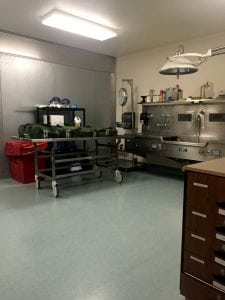
Interns from college criminal justice programs are often the first considered for new positions. McLeod recommends that interested students look at the the website for the American Academy Forensic Sciences. There they will find all the different fields available in forensic science (such as anthropology, digital forensics or toxicology), the required education, and more about working in the field, classroom, lab or on crime scenes.
“We often see what we call The CSI Effect,” he says with a laugh. “They think one person does it all, like ‘Abby,’ but it’s not that way.”
Working in the coroner’s office is an important, if little known, field of science. “The Coroner’s Office is the best kept secret in the county,” McLeod says. “No one wants to think about what we do.”
But now maybe some STEM students will give it some thought and consider it as an interesting and viable career choice.






